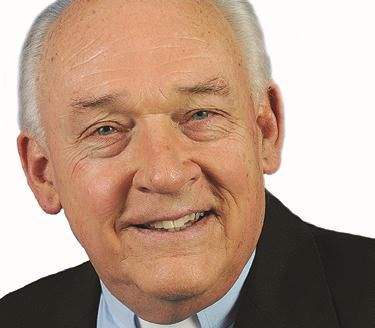
PETER CLAVER GAVE US A GOOD EXAMPLE OF HOW WE SHOULD TREAT OTHERS
September 26, 2017
Swamp tour legend "Black" Guidry dies
September 26, 2017In 1938, Reverand Albert Brumley, a famous gospel song writer wrote a song called “Turn Your Radio On”. He told how God used the radio to reach his flock. He could have, if he wanted to, after all, “God works in mysterious ways” but here’s the story of how I ventured into radio, an adventure that lasted over 35 years while maintaining a full time and several part time jobs. Since this happened before most of you were born, you’ll have to take my word for it. It’s all true.
Once upon a time there was a place that had no iPhones, iTunes, iPads, I-Hops, internet, Amazon, Facebook or television, and I was born and raised smack dab in the middle of it. It was called the Cajun Land of Louisiana. Were we miserable and despondent? No, because we couldn’t miss things that hadn’t been invented yet. We did have one form of entertainment available and free to all. It was called “radio!”
My Dad bought our first radio, a used set, in 1937. It had a big cabinet and sat in the corner for months because Lockport Power and Electric Co. hadn’t reached us yet.
When they did, we followed the mode, gathering around it every evening to watch … yes, I said “watch,” the radio!
The programs we listened to were “The Shadow,” “Gangbusters,” “Jack Benny” and “Fibber Magee and Molly.” For the ladies during the day there were “Our Gal Sunday,” “Ma Perkins,” “Guiding Light,” and “The Romance of Helen Trent.” Kids had “The Lone Ranger,” “Tom Mix,” “Jack Arm-strong, “and “Let’s Pretend.”
Every kid program offered, for a nickel or dime, a decoder ring, a secret badge, a toy gun or an Ovaltine cup. I bought them all. and had I kept them I would be rich today. They’re valuable.
Until the end of World War II there were only five New Orleans radio stations reaching us. In 1946, KCIL in Houma went on the air and in 1948, Mr. Ferdinand Block and partners Delta Broadcaster, Inc., applied for a license to open a station in Thibodaux.
KCIL, only 15 miles away, took them to court and prevented the license being granted until 1953 when on December 24th, KTIB went on the air.
In 1949, I started a live radio show, “Leroy Martin and the Southern Serenaders,” on KCIL. In 1950 I moved it to WWEZ in New Orleans.
Every week we received hundreds of cards and letters and dozens of telegrams which arrived while we were on the air.
Fast forward to 1954, I had a new job in the Assessor’s office and a Saturday afternoon program on KTIB. I’ll fill in that gap in the near future. Keep reading.
One day a new station manager Hal Benson called me to his office and said, “This Neilson report shows that although we’re new, one program tops the listening audience in our entire area and they don’t even know the name. They just list it as ‘Saturday afternoon hillbilly music’.” (Which is what country music was called then.)
He said, “You’ve struck a chord with listeners, and I want you to work for us full– time with a disc jockey record show and from now on it’s ‘The Leroy Martin Show.'”
“Mr. Benson,” I answered, “I have a good job that I don’t want to give up, but I am interested.”
“We’ll talk it over, but look this over. It’s been piling up on my desk,” and he handed me a paper bag full of cards and letters addressed to “Leroy” or “Saturday afternoon hillbilly music” or “That Martin Guy.” As my jaw hit the floor he said, “Now let’s get us each a quart of Falstaff beer.”
I knew where beer was sold in quart bottles so we drove to Hosea Hill’s Sugar Bowl bar, picked up two quarts and went back to the station to sip and talk. I told the story about Hosea Hill’s Sugar Bowl last week.
As we sat and talked, rolling around in my mind was the line that Humphrey Bogart said to Claude Rains at the very end of the movie Casablanca: “This looks like the beginning of a beautiful friendship.” That it was, but it ended too soon. Next week, Jim Michie and Roy Vicknair.
BYE NOW!
In this week’s peice, historical colunmist Leroy Martin discusses what it was like working as a radio DJ in the 1950s – an interesting time in music.








